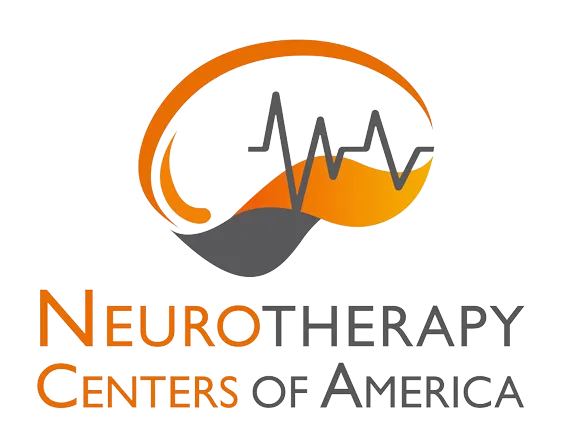
The Neuropathy and Anxiety Connection
“Stress is an ignorant state. It believes that everything is an emergency. Nothing is that important.” - Natalie Goldberg
Introduction:
Anxiety disorders affect millions of people worldwide, impacting their mental and emotional well-being. While the symptoms of anxiety are often associated with psychological distress, mounting evidence suggests a complex interplay between mental health and physical ailments. One such connection is the onset of neuropathy (not to be confused with "Neurotherapy", a condition that affects the peripheral nervous system. In this blog, we'll explore the intricate relationship between anxiety and neuropathy, shedding light on the mechanisms behind this connection and offering strategies for managing both conditions.

Understanding Neuropathy
Neuropathy, also known as peripheral neuropathy, refers to a condition that affects the peripheral nervous system, which includes the nerves outside of the brain and spinal cord. These nerves transmit signals between the central nervous system and the rest of the body, controlling various sensations and movements. When neuropathy occurs, these nerves become damaged or dysfunctional, leading to a wide range of symptoms, including pain, tingling, numbness, muscle weakness, and impaired coordination.
The Connection Between Anxiety and Neuropathy
While neuropathy is primarily a physical condition, research has shown a significant link between anxiety and its onset or exacerbation. Here are several key factors contributing to this connection:
Stress and Inflammation: Anxiety and chronic stress can lead to increased inflammation in the body. Elevated levels of inflammation are known to damage nerve tissue and exacerbate neuropathic symptoms.
Reduced Blood Flow: Anxiety often leads to constriction of blood vessels, reducing blood flow to various parts of the body, including peripheral nerves. Inadequate blood supply can contribute to nerve damage.
Altered Immune Response: Anxiety can dysregulate the immune system, making it more likely for the body to attack its own nerves, a condition known as autoimmune neuropathy.
Medication Side Effects: Some medications used to treat anxiety or depression may have side effects that affect the nervous system, potentially worsening neuropathy.
Behavioral Factors: Anxiety can lead to unhealthy lifestyle choices, such as poor diet, lack of exercise, and substance abuse, all of which can contribute to neuropathic symptoms.
Managing Anxiety and Neuropathy
If you are experiencing both anxiety and neuropathy, it's essential to address both conditions to improve your overall well-being. Here are some strategies to consider:
Consult a Healthcare Professional: Seek medical advice from a healthcare provider who can help diagnose and treat both your anxiety and neuropathy. They may recommend medications, therapy, or lifestyle changes.
Stress Reduction Techniques: Incorporate stress-reduction techniques into your daily routine, such as mindfulness meditation, deep breathing exercises, or yoga. These practices can help lower anxiety levels and reduce inflammation.
Healthy Lifestyle Choices: Adopt a balanced diet, engage in regular exercise, and avoid smoking and excessive alcohol consumption. These lifestyle changes can improve blood flow and reduce inflammation, benefiting both conditions.
Neurotherapy: Neurotherapy is a non-invasive, proven way to reduce anxiety on a lasting basis.
Therapy and Support: Consider therapy or support groups for managing anxiety. Talking with a mental health professional or connecting with others who share similar experiences can be incredibly beneficial.
Conclusion
The connection between anxiety and the onset or exacerbation of neuropathy is a complex and multifaceted one. While managing both conditions can be challenging, it is possible with the right support and strategies in place. Remember that seeking medical advice and adopting a holistic approach to your health, addressing both physical and mental aspects, can lead to better outcomes and an improved quality of life.
Virtual Options
Contact us to schedule a FREE consultation and find out how you can qualify for a FREE cognitive/behavioral and metabolic evaluation.
Contact us at https://www.neurotherapycentersusa.com/contact
Visit our website at https://www.neurotherapycentersusa.com
Visit our Facebook Page https://www.facebook.com/neurocentersusa
*The information in this blog is intended for educational purposes only. The opinions expressed in this blog are the opinions of the blog owner, and any other opinions in quotations are the opinion of the sited reference.
"Copyright Disclaimer under Section 107 of the copyright act 1976, allowance is made for fair use for purposes such as criticism, comment, news reporting, scholarship, and research. Fair use is a use permitted by copyright statute that might otherwise be infringing. Non-profit, educational or personal use tips the balance in favour of fair use."
Neurotherapy Centers of America 2023

The Neuropathy and Anxiety Connection
“Stress is an ignorant state. It believes that everything is an emergency. Nothing is that important.” - Natalie Goldberg
Introduction:
Anxiety disorders affect millions of people worldwide, impacting their mental and emotional well-being. While the symptoms of anxiety are often associated with psychological distress, mounting evidence suggests a complex interplay between mental health and physical ailments. One such connection is the onset of neuropathy (not to be confused with "Neurotherapy", a condition that affects the peripheral nervous system. In this blog, we'll explore the intricate relationship between anxiety and neuropathy, shedding light on the mechanisms behind this connection and offering strategies for managing both conditions.

Understanding Neuropathy
Neuropathy, also known as peripheral neuropathy, refers to a condition that affects the peripheral nervous system, which includes the nerves outside of the brain and spinal cord. These nerves transmit signals between the central nervous system and the rest of the body, controlling various sensations and movements. When neuropathy occurs, these nerves become damaged or dysfunctional, leading to a wide range of symptoms, including pain, tingling, numbness, muscle weakness, and impaired coordination.
The Connection Between Anxiety and Neuropathy
While neuropathy is primarily a physical condition, research has shown a significant link between anxiety and its onset or exacerbation. Here are several key factors contributing to this connection:
Stress and Inflammation: Anxiety and chronic stress can lead to increased inflammation in the body. Elevated levels of inflammation are known to damage nerve tissue and exacerbate neuropathic symptoms.
Reduced Blood Flow: Anxiety often leads to constriction of blood vessels, reducing blood flow to various parts of the body, including peripheral nerves. Inadequate blood supply can contribute to nerve damage.
Altered Immune Response: Anxiety can dysregulate the immune system, making it more likely for the body to attack its own nerves, a condition known as autoimmune neuropathy.
Medication Side Effects: Some medications used to treat anxiety or depression may have side effects that affect the nervous system, potentially worsening neuropathy.
Behavioral Factors: Anxiety can lead to unhealthy lifestyle choices, such as poor diet, lack of exercise, and substance abuse, all of which can contribute to neuropathic symptoms.
Managing Anxiety and Neuropathy
If you are experiencing both anxiety and neuropathy, it's essential to address both conditions to improve your overall well-being. Here are some strategies to consider:
Consult a Healthcare Professional: Seek medical advice from a healthcare provider who can help diagnose and treat both your anxiety and neuropathy. They may recommend medications, therapy, or lifestyle changes.
Stress Reduction Techniques: Incorporate stress-reduction techniques into your daily routine, such as mindfulness meditation, deep breathing exercises, or yoga. These practices can help lower anxiety levels and reduce inflammation.
Healthy Lifestyle Choices: Adopt a balanced diet, engage in regular exercise, and avoid smoking and excessive alcohol consumption. These lifestyle changes can improve blood flow and reduce inflammation, benefiting both conditions.
Neurotherapy: Neurotherapy is a non-invasive, proven way to reduce anxiety on a lasting basis.
Therapy and Support: Consider therapy or support groups for managing anxiety. Talking with a mental health professional or connecting with others who share similar experiences can be incredibly beneficial.
Conclusion
The connection between anxiety and the onset or exacerbation of neuropathy is a complex and multifaceted one. While managing both conditions can be challenging, it is possible with the right support and strategies in place. Remember that seeking medical advice and adopting a holistic approach to your health, addressing both physical and mental aspects, can lead to better outcomes and an improved quality of life.
Virtual Options
Contact us to schedule a FREE consultation and find out how you can qualify for a FREE cognitive/behavioral and metabolic evaluation.
Contact us at https://www.neurotherapycentersusa.com/contact
Visit our website at https://www.neurotherapycentersusa.com
Visit our Facebook Page https://www.facebook.com/neurocentersusa
*The information in this blog is intended for educational purposes only. The opinions expressed in this blog are the opinions of the blog owner, and any other opinions in quotations are the opinion of the sited reference.
"Copyright Disclaimer under Section 107 of the copyright act 1976, allowance is made for fair use for purposes such as criticism, comment, news reporting, scholarship, and research. Fair use is a use permitted by copyright statute that might otherwise be infringing. Non-profit, educational or personal use tips the balance in favour of fair use."
Neurotherapy Centers of America 2023

Download Our Free eBook Now
©2025 Neurotherapy Centers Of America.
All rights reserved.
*We offer a drug-free, non-invasive approach to alleviate symptoms associated with: ADHD, Autism Spectrum Disorders, Anxiety, Insomnia, Learning Disorders, Memory Loss, Fibromyalgia, Migraine and more..
Our advertising features actual client testimonials. Individual results may vary.
©2025 Neurotherapy Centers Of America. All rights reserved.
*We offer a drug-free, non-invasive approach to alleviate symptoms associated with: ADHD, Autism Spectrum Disorders, Anxiety, Insomnia, Learning Disorders, Memory Loss, Fibromyalgia, Migraine and more..

